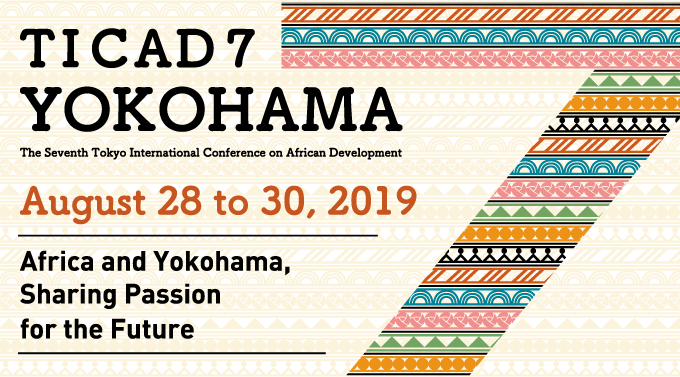Chinese presence in Africa looms over TICAD conference in Yokohama
The seventh meeting of the Tokyo International Conference on African Development opened in Yokohama Wednesday amid an intensifying race between China and other countries to expand their presence in Africa’s rapidly growing economies. Dozens of top African leaders came to Yokohama, but the Foreign Ministry has said it would not release the number of expected […]

The seventh meeting of the Tokyo International Conference on African Development opened in Yokohama Wednesday amid an intensifying race between China and other countries to expand their presence in Africa’s rapidly growing economies.
Dozens of top African leaders came to Yokohama, but the Foreign Ministry has said it would not release the number of expected African guests to the three-day summit meeting. The reason: Tokyo is worried that some leaders may cancel their trip right before the summit because of direct or indirect pressure from China, a senior Foreign Ministry official said recently.
“You can’t tell how many leaders will come until TICAD starts,” the official said, speaking on condition of anonymity.
Tokyo’s concern highlights the intensifying race on the continent among many countries, including Japan, China and Russia, to expand their presence there.
The United Nations now predicts that the total population of Africa will hit 2.5 billion in 2050, meaning one in every four people in the world will be African.
In addition, from 2000 through 2017, African countries enjoyed relatively high real economic growth of 4.3 percent on average, which has prompted many Western firms to believe in the future potential of African economies.
“Africa is an important region both politically and economically. That perception is now shared” by top political and business leaders of the world, said Shinichi Takeuchi, professor and head of the African Studies Center at the Tokyo University of Foreign Studies.
“It’s certain that a huge market will be formed in Africa,” he said.
Over the past 10 years, China has emerged as a powerful political and economic player in Africa, already having surpassed Japan by far in terms of both government development assistance and private-sector investment. Meanwhile, Russia is now set to organize a similar summit meeting with top African leaders in October.
Mitsugi Endo, a University of Tokyo professor and noted expert on African politics, said that Moscow appears to be trying to expand its clout in Africa while U.S. President Donald Trump remains totally indifferent toward African affairs.
Japan was a pioneer in organizing summit meetings of top African leaders – Tokyo kicked off TICAD in 1993, just as other developed countries greatly scaled down their official development assistance for African countries following the end of the Cold War.At that time, Japan, which became the world’s No. 1 ODA donor in 1989, was trying to raise its political status in the international community, one of key reasons for Tokyo to launch TICAD at a time when many African countries were struggling from poverty and political instability.
Another key aim of Japan was to win African countries’ support for Tokyo’s bid to reform the United Nations and become a permanent member of the U.N. Security Council. The African continent has more than 50 countries, and winning their support is essential to realizing any major reform of the U.N. As such, TICAD has long been a key diplomatic tool for Japan to pursue that goal, experts say.
But for the most part the Foreign Ministry didn’t have clear strategic goals, said Endo, who has been often consulted by ministry officials about African affairs.
“At least until TICAD 3, which was held in Tokyo in 2003, I was asked (by ministry officials) how they should position Africa in their diplomatic policies. I didn’t feel they had any specific strategy on Africa,” Endo said. Many Japanese businesses, too, were long indifferent about Africa, given their strong focus on the growing Asian market and shortsightedness toward African markets. But that attitude appears to be finally changing, given the recent high economic and population growth.
As a result, TICAD has now been re-designed to become more business oriented than ever, Japanese officials said. A plenary meeting on Thursday was attended by private-sector business leaders from both Japan and Africa for the first time.
This change represents a major departure from Japan’s original policy behind TICAD, which was mainly focused on ODA to be provided by Tokyo.
“It’s clear that TICAD has become more and more business-oriented over the past 10 years. Now the No. 1 agenda is how to bring Japanese private-sector businesses to Africa,” said Takeuchi of the Tokyo University of Foreign Studies. However, it may be too late for Japanese firms to finally get serious about African business opportunities, given the massive presence of the Chinese government and businesses.
More than 3,700 Chinese firms have advanced into Africa and about 1 million Chinese people are now reportedly living on the continent. Meanwhile, only 800 Japanese firms have offices in Africa, with only 8,000 Japanese nationals living in Africa.
This huge, widening gap has prompted Tokyo to emphasize the quality, not quantity, of Japanese assistance to African countries, officials said. Tokyo is also focusing more on human resources development assistance, they added.
Reiji Yoshida is a Staff Writer with the Japan Times
